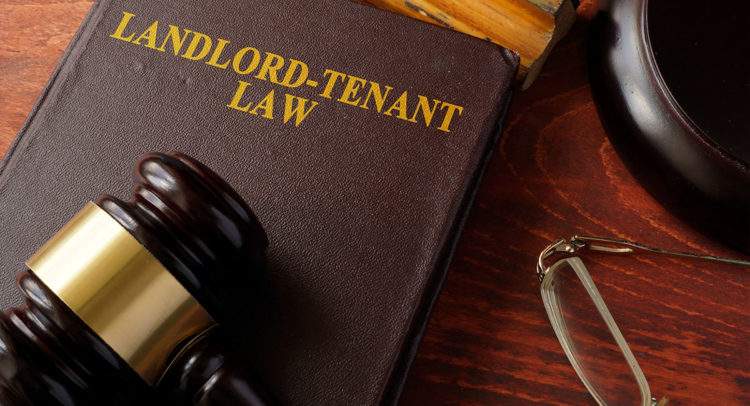COLLECTING MONEY FROM TENANTS:
When a tenant fails to pay rent or other sums due, there are several options a Landlord has to seek recovery of the money. Besides evicting the non-paying tenant, the Landlord could sue for recovery.
Lawsuit for Recovery of Unpaid Rent and Other Sums Due a Landlord:
Suing a tenant who has not paid rent is very often a useless exercise and waste of a landlord’s resources. Usually, if the tenant did not pay rent, it is because they do not have funds to pay. Suing will often not change that. However, if a Commercial Lease is guaranteed, then there may be a greater chance of recovery from the guarantor. For more information, click on the link about Lawsuits.
Using a Collection Agency:
A Landlord can use a collection agency to collect money due to a Landlord. A collection agency can be hired even without a judgment for eviction or for damages for a sum of money. Typically, the collection agency relies upon an accounting ledger provided by the Landlord. Collection agencies are qualified to pursue tenants, report to the credit reporting agencies such as TransUnion and Equifax, and is able to comply with state and federal Fair Debt Collection Practices. A collection agency usually charges a fee based on a percentage of the amount collected from the tenant, if any, and may charge a small up-front fee to cover some of its costs.
How Long Does it Take:
Collecting money from tenants can take an unknown amount of time. Often in the commercial setting, it is quicker. However, depending on whether a Landlord uses a collection agency or sues the tenant, the time could be shorter. But a tenant may file for bankruptcy, in which case the entire debt could be discharged, but there excepts that could prevent the discharge of the debt.
COLLECTING MONEY FROM TENANTS CAN BE ACCOMPLISHED IN SEVERAL WAYS
1) Make a Claim on the Security Deposit:
The Landlord can follow the rules regarding making a claim on the security deposit the tenant paid. Security deposit claims can be based on unpaid rent due, damages caused to the property, and late fees, to name a few. But Landlords must follow strict procedures otherwise they may lose their right to make a claim on the security deposit and would have to return the security deposit to the tenant.
2) Lawsuit for Damages
If an eviction lawsuit is brought against a tenant, the Landlord can also make a claim for Damages at the same time. However, in an eviction action, the Landlord is entitled to expedited proceedings which helps the case more quickly through the courts. If a second cause of action for Damages is made, it could slow down the eviction lawsuit. A Landlord is entitled to bring two separate lawsuits, one for eviction, and a second claim later for Damages.
A lawsuit for Damages can be made in small claims court if the Damages amount is less than $5,000. There are simplified rules for small claims cases, and many Landlords can represent themselves in small claims court cases. If Damages sought are between $5,001 and $14,999, the lawsuit is brought in county court. Damages over $15,000, not including attorneys’ fees, are brought in general jurisdiction circuit court.
Winning the Damages lawsuit against the tenant does not automatically mean the Landlord will get paid. A judgment is only an award of money due to the Landlord. With that, the Landlord must try to collect on the money judgment. This is done through execution on the judgment, using tools available such as garnishment of the former tenants’ salary or levying on the property of the tenant. But if the tenant does not have any property, or falls within certain exemptions (Florida’s Constitution provides that certain assets are exempt from judgments, such as homestead property) the judgment is very likely to go uncollected.
In commercial tenancies, there is often a personal guarantee. So if the tenant is a company and it stops operating, with a personal guarantee, the Landlord can pursue a judgment from the guarantor in addition to the corporate tenant.
3) Use a Collection Agency:
Collection agencies can pursue money Landlords are owed from tenants. No lawsuit judgment is required before the Landlord can bring the claim to a collection agency. All that is needed is a ledger or report of the amount of money owed from the tenant. A collection agency may decide to file a lawsuit to collect money on the claim. But in that case, typically the Landlord is not required to pay anything as the collection agency takes the case on contingency. A collection agency can be very good at seeking assets of the former tenant which can be used to satisfy the debt owned. Often, however, there is a significant discount offered to the former tenant in order to collect money on the claim.
KEEPING TENANT SECURITY DEPOSITS
 A security deposit is held by a landlord as security for the tenant’s complete performance under the lease. After the tenant vacates, the landlord should do a walk-through of the property with the then-former tenant present. Any damages to the property should be noted on a move-out form. Taking pictures of damages can also prove useful later. Then, the landlord can perform an accounting of damages caused to the property beyond reasonable wear and tear, unless the lease has other provisions regarding damages. And an accounting of any sums that should have been paid by the tenant but which remain outstanding should be performed.
A security deposit is held by a landlord as security for the tenant’s complete performance under the lease. After the tenant vacates, the landlord should do a walk-through of the property with the then-former tenant present. Any damages to the property should be noted on a move-out form. Taking pictures of damages can also prove useful later. Then, the landlord can perform an accounting of damages caused to the property beyond reasonable wear and tear, unless the lease has other provisions regarding damages. And an accounting of any sums that should have been paid by the tenant but which remain outstanding should be performed.
The landlord then has limited time to properly serve documents upon the former tenant in order to keep the security deposit and apply it against money the former tenant owes for damages and rent or other money owed to the landlord. Proper procedures must be followed, or the landlord may forfeit the right to keep the security deposit.
See a sample Notice of Claim on Security Deposit. (a sample Notice of Claim on Security Deposit)
Hire Us to prepare Landlord’s Notice of Claim on Security Deposit.
USING TENANTS' PROPERTY AS SECURITY FOR RENT DUE
Commercial tenants place their personal property onto the leased premises. This includes things like inventory, equipment, and supplies. The landlord is, by law, granted a lien on the tenants’ personal property. The landlord can enforce this lien right by stopping tenants from removing their personal property from the rental premises. A Distress Writ is a legal mechanism to prevent tenants from taking their property out in a midnight rush to abandon the premises and try to not pay rent owed.
Our firm can seek issuance of Distress Writs for commercial landlords.
LANDLORDS HAVE AUTOMATIC LIENS ON TENANT PROPERTY
Florida law grants landlords in commercial properties the right to assert a statutory lien on all of the personal property the tenant brings onto the premises. The lease may also allow for a consent or contractual lien on tenant property. The landlord can take steps to enforce the lien, by retaining the property of the tenant and by foreclosure of the lien.
Hire Us to enforce a Landlord’s Lien rights!
LAWSUITS AGAINST LEASE GUARANTORS
A guarantor to a lease is a person or company that promises to pay money that the tenant fails to pay. Enforcement of lease guarantees involves compelling the guarantor to be notified of the tenants’ default, and a demand for payment. Otherwise, a lawsuit against the guarantor may be required. The defenses a guarantor can raise against the landlord’s lawsuit to enforce the guarantee are usually quite limited, making enforcement of the guarantee more likely to succeed. A transfer of the leased property could have an effect on the guarantee.
Hire Us to Enforce a Lease Guarantee!


